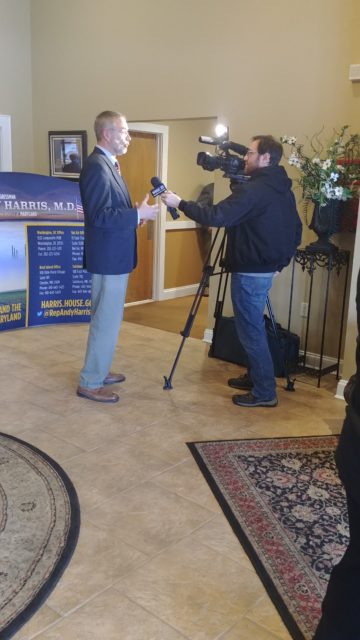This is the eighth part of a multi-part series taking a deeper dive into various important topics in the 2020 election. On the 100-point scale I am using to grade candidates, entitlements are worth 13 points. And in case you are wondering, I don’t get along with the “it’s our money that we’re only getting back” crowd – to me, Medicaid, Medicare, and Social Security are entitlements. Here’s where I will see what the candidates have to say.
This section of the dossier has been revised and updated to reflect the general election field.
It’s become an annual rite of sorts – it seems like every year we hear the news that Social Security and Medicare are projected to take in less than they give out years sooner than projected. We’re assured they’re not going to go bankrupt but there may come a point where they won’t be able to meet the promised benefits. (That always seems to be just about the time I am eligible to collect.)
The fix is relatively simple, they say: ratchet up the retirement age, begin means testing, or place more income inside the reach of the Social Security tax (which caps someplace in the low six figures.) On the other hand, we have a President who earnestly believed a booming economy would solve the problem. All I know is that something will be done in the next few years because doing nothing will be its own action, with consequences.
I’m going to foreshadow my thoughts on the next part regarding the role of government here by stating some unpopular opinions.
The problem with the federal approach isn’t the end goal, but the approach. As I see it, there is an implication that we need a federal solution to a problem they created when in fact health insurance is one of those commodities best handled at a state level. The needs of Florida and its high retiree population are vastly different than a state like Maryland which trends younger.
It should have been a priority in the previous Congress to rip out Obamacare by the roots, but instead our side fumbled it away. I’ve heard the argument that most of the program was rendered moot by Congress removing the tax penalty (putting it outside the boundaries of NFIB v. Sebelius) but nothing would have sent the message more clearly than a straight repeal. We also kicked the other entitlement cans down the road thanks to a lack of emphasis on a fix from the top.
Seeing how gutless Congress is on these subjects, and having a long memory of the reception a modest proposal on Social Security received (remember George W. Bush wishing to privatize a fraction of it?) it’s frankly disappointing to see no new ideas from the field. Again foreshadowing, I’m not sure the GOP portion of the Congressional field wishes to rightsize government. It’s more the approach of making government perhaps run more efficiently but not trying to restore a more Constitutional approach.
Since I originally wrote this, much of the field has checked in on the subject. We remain in the same batting order.
Lee Murphy (R) (House)
“The government needs to get out of the health insurance business once and for all. Competition should drive the market for health insurance, not mandates from the federal government. I believe that individuals are best equipped to make health insurance decisions for their families.”
I like that, so far. But there’s more.
“The citizens of this country should be offered a competitive choice for health insurance plans. I support legislation allowing families to buy health insurance across state lines. It would drive down the cost of health insurance, making it more affordable and more accessible. If you live in Delaware and a better plan is available in Nebraska, you should be able to buy it.”
That’s been a standard GOP line for awhile, but there’s a lot of merit to it – and it’s a start to what needs to be a lengthy adult discussion. 4 points out of 13.
Lauren Witzke (R) (Senate)
This is one subject Lauren has not updated us on, but we still have time. No points.
David Rogers (L) (House)
And he starts out so well: “Too often the government tries to help people out only to end up creating a cycle of dependency.”
Then the wheels come off and Rogers goes against the grain of his party, stating, “There are too many restrictions on if people can have money and how they have to spend it. This ends up making the government very paternal in nature, and it also leads to a massive bureaucracy. We should eliminate all social welfare programs and replace them with a universal basic income. We should treat all people as if they are adults and if they need assistance we give it to them.”
I thought the idea of libertarianism was to enhance the individual. A UBI program simply becomes wealth redistribution from those who wish to work to those who don’t. Thus, he gets 0 points out of 13.
Nadine Frost (L) (Senate)
It’s brief but golden: “Public health belongs to the states, CDC can only provide guidance. No provision in the Constitution for government to run public health.” Bingo! There’s no provision there for Social Security or any other entitlements – spare me the tired “general welfare” tripe.
Since I wrote this I didn’t think Nadine could improve on this, but she did: Social Security “is, was, and ever will be what is known as a ‘Ponzi Scheme’, which means that payouts at the top are covered by incoming payments from the bottom.” She gets it! 11.5 points out of 13.
Catherine Stonestreet Purcell (IPoD) (House)
This is like a sketchbook of ideas:
“Reach the goal of affording everyone in America equal healthcare at reasonable prices. Restoring funds stolen from social security.” Not sure how you can get back what was spent long ago, though.
“Reducing the price of healthcare and medication costs so that all Americans can receive affordable healthcare.” It’s a good idea, but it’s missing some steps from point A to point B.
“Establish a SPECIAL INVESTIGATION TASK FORCE to ensure transparency and efficiency of the spending of our nation’s tax dollars… I have 32 years banking experience which I can use to conduct audits. This should reveal much waste and funds can be redirected towards American healthcare programs.” I don’t think the powers that be want that – they benefit from the waste.
“I would also expand on home healthcare programs as they appear to be more effective than nursing homes. Both patients and healthcare providers enjoy a happier environment.” It seems to me the private sector can take the lead on this. The mixed bag gets her 3 points out of 13.
Mark Turley (IPoD) (Senate)
Mark wants to: “Provide affordable health care and affordable prescription drug prices for all. Provide a solid safety net for those who cannot afford health care benefits. Provide a platform for sustainable social programs. No need for Medicare for All, however.
Provide, provide, provide. You basically created Medicare for All without the fancy name. 0 points out of 13.
Lisa Blunt Rochester (incumbent D) (House)
From 2016, she charges, “Most Republicans in Washington want to gamble with our seniors’ wellbeing by privatizing Social Security and cutting Medicare, I’m running for Congress to ensure that doesn’t happen.” Too bad because the Republicans have the right approach.
But it gets worse. “Protecting and strengthening Obamacare is vital to the interests of our state. The Affordable Care Act has brought the number of uninsured down to historic lows, taking the burden off the backs of taxpayers and helped stabilize sky rocketing insurance rates. The law is not nearly perfect, but it is already a huge step forward.” Demonstrably wrong.
“Tens of thousands of Delawareans have insurance now, but we still have to do more to bring costs down. Republicans in Washington propose we do this by taking away insurance from millions of people. This is not the way to improve our system.” The way to improve our system is to add a little personal responsibility and competition, neither of which you’ve encouraged.
No wonder you don’t do an issues page. 0 points out of 13.
Chris Coons (incumbent D) (Senate)
“Chris believes that access to quality, affordable health care is a right, not a privilege, and in the midst of a global pandemic he’s fighting harder than ever to make this a reality for all of us.”
Health care is not a right. I am not entitled to have you pay for my health care.
“Chris has pushed back time and again on President Trump and congressional Republicans who want to put Americans’ health care back in the hands of insurance companies.” So instead he would give it to some unelected, unaccountable bureaucrat. We can change insurance companies. 0 points out of 13.
Standings:
House: Murphy 26.5, CSP 17, Rogers 13.5, LBR 3.5.
Senate: Witzke 36.5, Frost 33, Turley 6.5, Coons 1.
I’m going to share my thoughts on the candidates and how they seem to perceive the role of government in my next, penultimate part.



